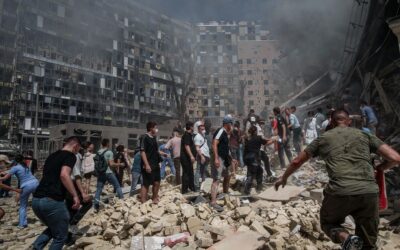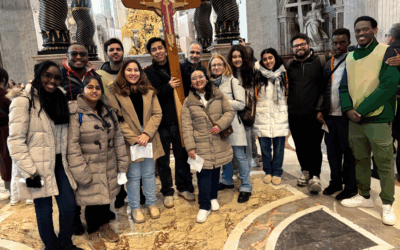Could you tell us something about the ‘Together for Europe’ meeting in Munich? ‘It was a very constructive experience because it gave the possibility for members of different movements to meet again and to participate in the many expressions the movements have. This participation in the life and charism of the other is an enrichment because it opens us to the gifts of the other. It’s always interesting to see that at the end of the day, notwithstanding the variety of charisms, there is a common foundation to all of these movements: belief in God, in Jesus Christ, sent by the Father for the salvation of the world. I often think that the expressions of the Movements are like lots of flowers on the one tree. You could see this tree very well in Munich – and it was solid, very solid.’ What is the role of these movements in the Church and in Europe today? ‘To give witness to the possibility of communion. To be a committed and knowledgeable laity. Not a laity where each person goes their own way, but one that decides to share with others the same aim: unity. The unity of the churches, the unity of Europe, unity amongst everyone. We may go ahead in different ways, but we are all going in the same direction and all together. The presence of the bishops was important, in this sense, and the recognition they gave of the usefulness of the path followed together so far for a more Christian Europe, not only more united, but more Christian because founded on Christian principles. But Christians in Europe are divided. How significant is this division? ‘It is the suffering of living together for a unity which is not yet complete. When we have reciprocal love and the sufferings of one become the sufferings of the other, it’s possible to be open. It’s possible to become aware of the difficulties that still exist and also the possibilities we have of overcoming them a little at a time. We also have to understand what can be done as we wait for the theologians in charge of dialogue to find the right words and means to reach expressions of truth that we can all agree about. Surely truth must be one, not multiple. We must reach a truth that is expressed in a way that everyone can accept. Logically this is the work of the Holy Spirit, but we think and we see that the more reciprocal love there is between Christians, the easier it is to agree on some points that may be controversial and to find a way to understand each other and to go ahead together. It’s like when you are climbing a mountain: sometimes you need to stop a moment to think about the next stage. I think this witness is very important at a time when there are many shadows on the Church. We must show the truth of what Jesus says about himself: my words will not pass away. The accusations that weigh on the Church today will disappear if we can show the Church as it should be, that is, if we show this reality of communion between us and our decision to live the Gospel in a radical way. Is this the answer the movements can give in the current situation the Church is in? ‘We must convert ourselves to living the Gospel more and to live it more in communion. The main thing is to help everyone to believe in God’s love and to live out what God asks of us in the present moment with generosity and in a radical way.’ The theme of the Kirchentag was hope. Was the “Together for Europe’ meeting a sign of hope? ‘Definitely. You could see that from the joy in everybody there. In whatever moment you entered, you had the impression of an injection of trust. Trust in God, trust in humanity, trust in the Church.’ From our correspondent Maria Kuschel
Work for a united world
Work for a united world




0 Comments